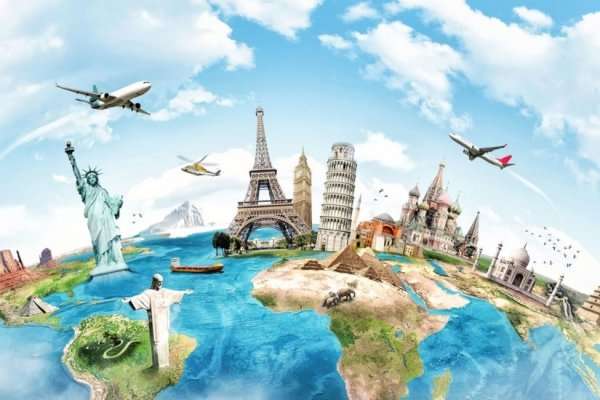Tourism is an industry that has been growing rapidly over the past few years. With more and more people travelling from all over the world to explore new destinations. However, with this growth comes a need for effective communication between tourists and locals. Translation for tourism has become an increasingly important tool, allowing visitors to communicate with locals and experience new cultures without language barriers. In this blog, we will discuss the importance of translation in the tourism industry and how it can be used to enhance the visitor experience.
Why Translation Matters in Tourism
Tourism is an industry that relies heavily on communication. Visitors need to be able to communicate with locals to get directions, ask for recommendations, and understand cultural norms. However, language barriers can make it difficult for visitors to communicate effectively. This is where translation services come in. Translation services can help visitors communicate with locals, making their travel experience more enjoyable and stress-free. In addition, translation services can help businesses in the tourism industry communicate with their customers, making it easier to attract and retain visitors.
Types of Translation Services
There are several types of translation services that can be used in the tourism industry. Some of the most common types include:
- Interpretation services: Interpretation services are used for live communication, such as in-person meetings or phone conversations. These services can be used to help visitors communicate with locals or to help businesses communicate with their customers.
- Written translation services: Written translation services are used for translating written documents, such as brochures, menus, and signs. These services can be used to help visitors understand important information about their destination or to help businesses provide information to their customers.
- Website translation services: Website translation services are used to translate websites into different languages. These services can be used by tourism businesses to attract visitors from different countries and to provide information about their services in multiple languages.
Benefits of Translation Services in Tourism
Translation services can provide several benefits to both visitors and businesses in the tourism industry. Some of these benefits include:
- Improved communication: Translation services can help visitors communicate with locals, making it easier to navigate new destinations and understand cultural norms.
- Increased customer satisfaction: Translation services can help businesses communicate with their customers, making it easier to attract and retain visitors.
- Expanded customer base: Translation services can help businesses attract visitors from different countries, expanding their customer base and increasing revenue.
The Challenges of Translation in Tourism
Although translation services can help overcome language barriers, there are still many challenges involved in translating for the tourism industry. These can include cultural differences, regional dialects, and technical vocabulary that may not have an equivalent in other languages.
How to Choose the Right Translation Service for Your Tourism Business
When choosing a translation service for your tourism business, it’s important to consider factors such as price, quality, and turnaround time. You should also look for a service that specializes in tourism translation and has experience working with businesses in your industry.
The Role of Technology in Translation for Tourism
Technology is playing an increasingly important role in translation for the tourism industry. Advances in machine translation and artificial intelligence are making it easier and more cost-effective to translate large volumes of content quickly and accurately.
The Importance of Cultural Sensitivity in Translation for Tourism
Cultural sensitivity is essential when translating for the tourism industry. Translators need to be aware of cultural norms, customs, and taboos in order to avoid offending visitors or locals. They also need to be sensitive to the needs of different cultural groups and adapt their translations accordingly.
The Ethics of Translation for Tourism
Translation in the tourism industry raises a number of ethical questions. Such as whether it is appropriate to translate sacred or sensitive cultural material. Or whether it is acceptable to use machine translation for important communications with visitors. Businesses must consider these issues carefully and develop policies reflecting their values and priorities.
Conclusion
In conclusion, translation plays a crucial role in the tourism industry, helping businesses to overcome language barriers, attract new visitors, and create more personalized experiences for their guests. Whether it is through website translation, cultural adaptation, or multilingual staff training, businesses that invest in translation services are more likely to see an increase in revenue and customer satisfaction.
We hope you enjoyed the blog post of Languages Unlimited. As the tourism industry continues to grow and become more globalized, translation will become an even more essential tool for businesses looking to succeed in this competitive market. By embracing translation and developing effective strategies for communicating with visitors from around the world, companies can create a more welcoming and inclusive environment that celebrates the richness and diversity of different cultures.

